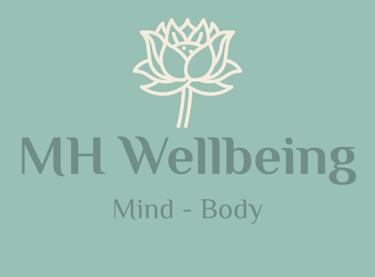Letting Go: How to Stop Trying to Control Other People's Emotions
Have you ever found yourself wanting to fix things for someone you care about? Maybe a friend is struggling, or a family member is upset, and you instinctively jump in, offering advice, solutions, or even trying to steer their emotions in a more positive direction. It comes from a place of love, but if we’re honest, it can also feel exhausting and frustrating—especially when our efforts don’t seem to make a difference. Understand why we try to control other's emotions and most importantly, what to do to free yourself.
ACCEPTANCEMINDFULNESSSTRESSPEOPLE PLEASING
Maria Hancock
3/26/20254 min read


Letting Go: Why We Crave Control and How to Find Freedom
Have you ever found yourself wanting to fix things for someone you care about? Maybe a friend is struggling, or a family member is upset, and you instinctively jump in, offering advice, solutions, or even trying to steer their emotions in a more positive direction. It comes from a place of love, but if we’re honest, it can also feel exhausting and frustrating—especially when our efforts don’t seem to make a difference.
Recently, I had a moment of realization when talking to my daughter. I was trying to jump in with a solution, and she firmly told me, “You don’t need to fix it for me, Mum.” She explained that she just wanted to talk, and when I immediately tried to “help,” she didn’t feel heard. It was an eye-opening moment that reminded me how important it is to simply be present, rather than trying to take charge of someone else’s emotions.
The difficult truth is that as much as we want to help, we cannot control how others feel. And trying to do so can leave us feeling stressed, overwhelmed, and disconnected from the people we care about most. So why do we have this deep urge to manage others' emotions? And more importantly, how can we let go of the need for control and find peace in the process?
Why Do We Crave Control?
It’s completely natural to want to help the people we love. We don’t like to see them hurting, and it’s tempting to believe that if we just say the right thing or do enough, we can make everything better. But the desire for control often comes from a deeper place—our own discomfort with uncertainty.
What Makes Us Feel Overly Responsible for Others’ Emotions?
🌱 Childhood Conditioning
Growing up in an environment where emotions weren’t handled in a healthy way can shape this tendency.
If you were praised for being the "peacemaker" or scolded for expressing your own emotions, you might have learned that managing others’ feelings keeps you safe or valued.
Children of emotionally unpredictable parents may develop hyper-awareness of others’ moods as a survival mechanism.
🤝 People-Pleasing Tendencies
If you’ve been taught (explicitly or implicitly) that your worth comes from making others happy, you might struggle to separate your own emotions from theirs.
Fear of conflict or rejection can drive a need to regulate others’ feelings to maintain harmony.
😨 Anxiety and the Need for Control
If you struggle with anxiety, uncertainty might feel unbearable. Managing others’ emotions can create an illusion of control in an unpredictable world.
By keeping others happy, you may unconsciously attempt to minimize stress or potential conflict.
🌍 Societal and Cultural Expectations
Certain cultures or family dynamics reinforce the idea that it's your duty to keep others emotionally comfortable.
Women, in particular, are often socialized to be caregivers and emotional managers in relationships, sometimes to an unhealthy degree.
💔 Trauma and Codependency
Past trauma—especially in relationships—can lead to a heightened sense of responsibility for others' well-being.
Codependent relationships reinforce the belief that one person must sacrifice their own needs to maintain the emotional stability of the other.
How to Break Free
So, how do we break free from the cycle of trying to control the uncontrollable? Here are some simple but powerful shifts to help you embrace emotional freedom:
✔️ Recognize What’s Yours and What Isn’t – Others’ emotions belong to them, just as yours belong to you. We can only control ourselves and our reactions to others. No matter how much effort we put into making someone feel better, the truth is: their feelings are theirs to own. This realization might feel frustrating at first, but it’s also incredibly freeing. Instead of constantly trying to fix, we can shift our energy toward acceptance - both of others and ourselves.
🛑 Set Healthy Boundaries – Just because someone is struggling doesn’t mean it’s your job to fix it. It’s okay to offer support, but it’s equally okay to recognize your limits. Boundaries protect your emotional well-being and help you show up for others in a sustainable way.
💙 Practice Self-Compassion – Your worth isn’t tied to how well you manage other people’s feelings. Be kind to yourself as you unlearn old patterns and embrace a healthier approach.
🧘 Practice Mindfulness – When we’re caught up in worrying about others, we’re often stuck in our heads. Mindfulness—whether through meditation, deep breathing, or simply staying present—helps ground us. It teaches us to observe without judgment and let go of the need to intervene.
💬 Shift Your Focus to Connection – Instead of trying to change how someone feels, try simply being there for them. Listen without offering solutions. Validate their emotions without trying to reshape them. Often, the most healing thing we can do for someone isn’t to fix, but to let them feel heard and understood.
👐 Seek Support for Yourself – Letting go of control isn’t always easy, especially if it’s a pattern you’ve carried for a long time. Talking to a therapist, journaling, or even just confiding in a trusted friend can help you navigate these feelings and develop healthier ways to cope.
The Freedom of Letting Go
When we release the need to manage other people’s emotions, we create space for healthier, more authentic relationships. We stop carrying burdens that aren’t ours to bear, and in doing so, we find a sense of peace we may not have even realised we were missing.
So the next time you feel that urge to control or fix, take a step back. Breathe. Remind yourself that your job isn’t to change how someone feels—it’s to be present, compassionate, and accepting. And in doing so, you just might find a deeper sense of connection, both with others and yourself.

MH Wellbeing, Maria Hancock MSc GQHP
Trauma-Informed Somatic Therapist, Hypnotherapist, Mindfulness Teacher, SIRPA Pain Recovery Practitioner
Specialist in stress, anxiety, chronic pain and other mind-body symptoms.
Local areas: Horley, Reigate, Redhill in Surrey and Crawley, Horsham, Copthorne in West Sussex. English Speaking Online Therapy.






